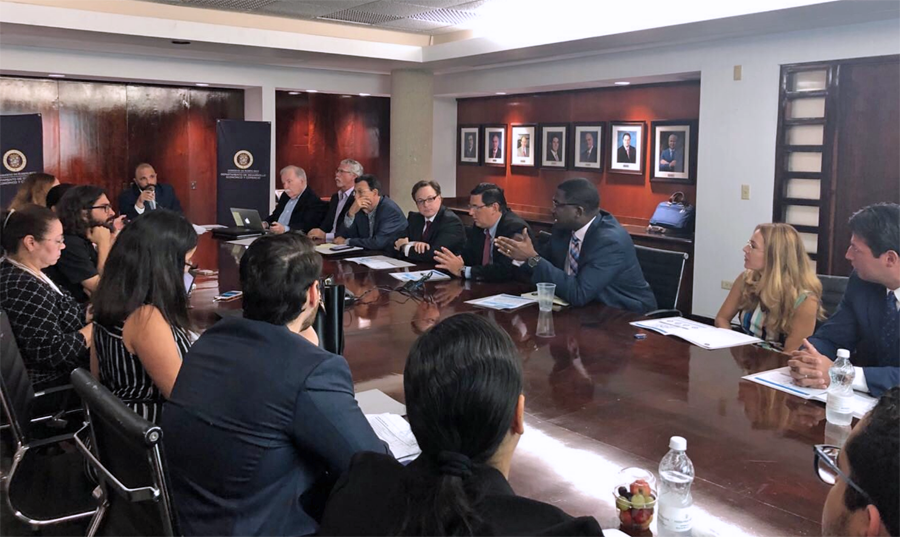Puerto Rico comptroller: Oversight of tax decrees lacking

The Puerto Rico Comptroller’s Office has issued a qualified opinion on the fiscal operations of the Economic Development and Commerce Department (DDEC, in Spanish). In its news release, the comptroller said a qualified opinion is issued when “noncompliance, whether individual or aggregate, is significant but not pervasive.”
The report, which covers the period from July 1, 2016, to Jan. 31, 2022, found what the Comptroller’s Office called “deficiencies in the oversight of businesses and investors” under acts 20 and 22 of 2012, which offer reduced income tax rates and property tax exemptions, among others, subject to various requirements.
Act 20, formally known as the Act to Promote the Exportation of Services, and Act 22, the Act to Promote the Relocation of Individual Investors to Puerto Rico, were enacted to stimulate the island’s economy. In 2019, they were integrated into the Puerto Rico Incentives Code, known as Act 60.
Act 20 aims to encourage local service businesses to expand beyond the island, offering tax incentives for companies that export services. It requires businesses to establish and maintain a bona fide office in Puerto Rico, provide a service from Puerto Rico to outside markets, and potentially create a certain number of jobs.
Act 22 seeks to attract high-net-worth individuals to relocate to the island by providing tax exemptions on passive income, which includes dividends, interest and capital gains generated from investments. It requires individuals to establish Puerto Rico residency and make annual charitable contributions.
The comptroller said a look at 10 of the 2,226 businesses that have received tax decrees showed that “the DDEC’s Incentives Office did not require one of the businesses to create three direct jobs, did not require another business to submit an affidavit of its start date, did not require annual tax reports from two businesses, nor did it require four shareholders of three businesses to submit eight income tax returns.”
Furthermore, “the Incentives Office did not require one investor to submit annual reports, did not require evidence of the Individual Statement from the Internal Revenue Services from five investors, nor did it request evidence from two investors of mandatory donations of at least $5,000 to nonprofit entities,” the release added.
These cases, the comptroller said, prevent “validating compliance with the requirements of the granted decrees and do not [provide] the Department the necessary information for statistical purposes and economic studies.”
On April 7, 2021, the DDEC hired a financial consulting firm to conduct the audit “after nine years without auditing compliance with the decrees,” the release reads.
The comptroller said the audit’s findings indicate that, “regarding the requirement to have an office or establishment located in Puerto Rico, auditors could not locate one business’ office, could not validate the existence of another office that had been dissolved, and another business had leased a virtual office.”
“These situations prevent errors, deficiencies and irregularities from being detected to establish responsibilities and take corrective measures,” the comptroller noted. “In addition, businesses could benefit from tax incentives without complying with the requirements of the granted decrees.”
The report states that the DDEC did not prepare the annual reports from 2016 to 2019, which are legally required to be presented to the governor and the Legislative Assembly.
Además, al 23 de julio de 2020, el Departamento no había promulgado un reglamento, carta circular o determinación administrativa que regulara la presentación de la solicitud del decreto, la imposición de penalidades por incumplimiento y los procesos de fiscalización y elaboración de auditorías de cumplimiento, entre otros. Esta ausencia de reglamentación pudo haber dejado sin mecanismos legales al Departamento para hacer cumplir los decretos otorgados.
Furthermore, “as of July 23, 2020, the Department had not promulgated a regulation, circular letter or administrative determination that regulated the submission of the decree request, the imposition of penalties for noncompliance and the oversight processes and preparation of compliance audits, among others,” according to the release.
The comptroller said that the lack of regulations, could have left the DDEC without legal mechanisms to enforce the granted decrees.
The release points out that DDEC operations are funded by the general budget, special allocations, its own revenue, or state and federal special funds.
“The audited financial statements reflected that the Department generated revenues of $1,279,260,303 and spent $1,218,857,652 with a surplus of $60,402,651,” the comptroller added.













